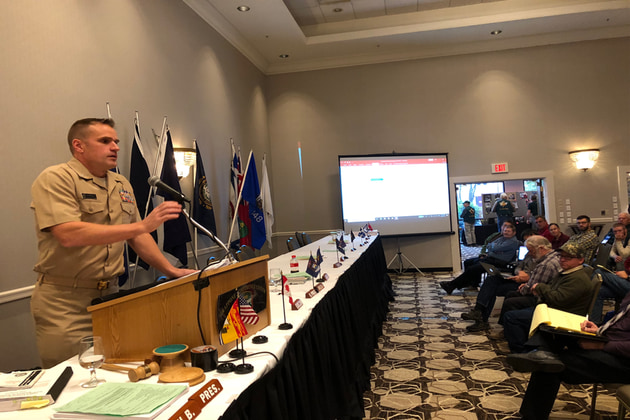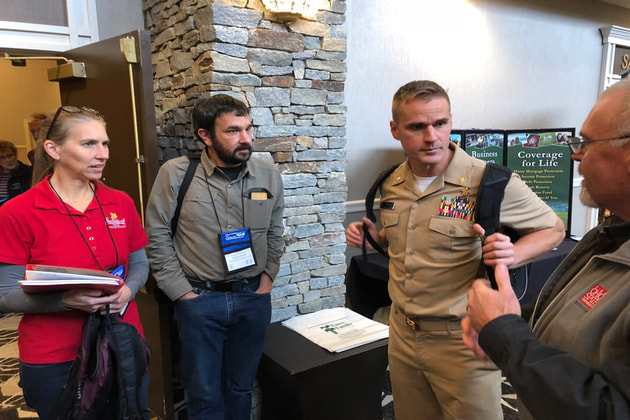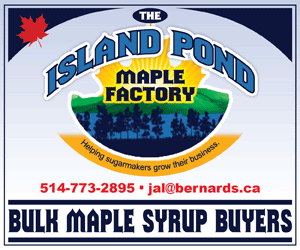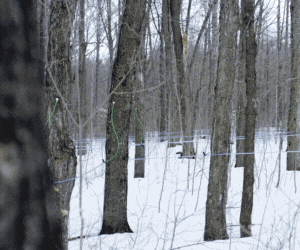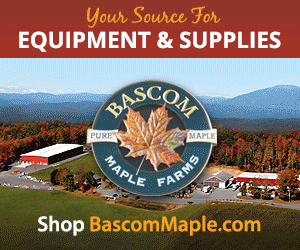Food Safety & Gov't Regulations
FDA official calms fears about inspections
Sugarmakers can unregister from FDA
By PETER GREGG | JANUARY 25, 2019
CONCORD, N.H.—The FDA may be getting “defriended” by sugarmakers.
Sugarmakers who registered their operations with the FDA, some of who did so as early as 2003, can unregister themselves if half or more of their gross sales is direct-to-consumer retail.
“You can cancel your food facility registration,” said Commander Joseph Frost of the U.S. Public Health Service, a branch of the FDA.
Frost was the keynote speaker at the North American Maple Syrup Council annual meeting last month in Concord, N.H. and while there still seems to be some ambiguity in the new Food Safety Modernization Act’s effect on maple, Frost’s remarks put many at ease.
“If 50 percent of your money is from direct-to-consumer sales, you are exempt from FDA regulations,” Frost said, and repeated it several times in his remarks.
“So if I sell most of my syrup retail, I am totally exempt from everything?” asked Ron Wentzel, a sugarmaker from Hebron, Ct.
“If you build a sugar shack, but 50 percent of your money is from direct consumer sales, you are exempt from FDA regulations,” Frost repeated.
The confusing regulations imposed by the FDA on sugarhouses have been a source of anxiety for many sugarmakers, some even choosing to pull out of the commercial market rather than subject themselves to government regulation. Producers had until Sept. 17 to register online with the agency.
But Frost’s remarks were disarming for most, especially the smaller sugarmakers.
Frost even had answers for sugarmakers making candy and cream: They’re exempt too if their market is more than half retail. Even if the sugarmaker is making the confections in a home kitchen, he said.
Still there will be a learning curve for the agency and Frost did not address some of the horror stories floating around the industry of loafer-wearing, city-based FDA inspectors spending days at sugarhouses, grilling owners on every aspect of their operations with cold knowledge of how syrup is even made.
“We have a responsibility,” Frost said. “Once we show up we have to get the whole story.”
Producers who are subject to the new laws—those who wholesale more than half their crop—will be expected to follow Current Good Manufacturing Practices and provide training to others working in the operation to follow those same guidelines.
But even for the smaller producer, the guidelines will not be too stringent.
Producers who have had less than $1 million in sales over the past three years and have less than 500 employees, will be exempted from the most stringent aspects of the law, like hiring an outside firm to conduct a hazard analysis study, which can be very costly.
Frost said there would not likely be financial penalties if producers refused to comply.
“We try to give people the opportunity to comply,” he said. “The agency is committed to partnering with the industry. We will be using a strategy of escalation. Voluntary compliance is what we are after.”
Meanwhile, producers on the other side of the barrel, so to speak, the ones who bulk their syrup for the wholesale market, will need to get their sugarhouses in order and could be subject to inspections at any time.
What is very unclear is who exactly will be doing the inspecting. While many producers in various states will be inspected by the FDA themselves—Frost and his team is based in Highgate Springs, Vt.—other states are angling to have state inspectors handle the duties on behalf of the feds.
But that is causing much confusion.
In Wisconsin, producers are experiencing much frustration. Wisconsin is trying to implement their own set of regulations to piggyback on the FDA rules. Some of those state regulations may include regulation of the “gray water” dumped by sugarmakers from their RO machines.
“They are calling it ‘waste water’” said Merrill, Wisc. sugarmaker Joe Polak.
Sugarmakers may be required to send RO water into a septic system or a holding tank. But the rules so far are very unclear.
“They’re inspecting things based rules they don’t have yet,” said Gary Graham, a consultant based in Ohio that has been lending his services to the Wisconsin maple industry to help figure out that state’s rules and regulations. “Trying to make sense of these things makes your head spin.”















